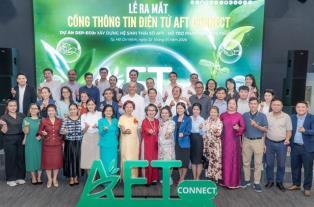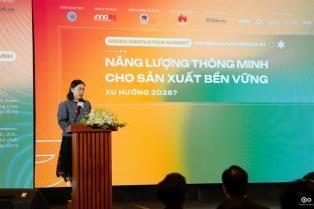Human resource management has evolved beyond mere recruitment to become a strategic imperative for Vietnamese enterprises in the digital era as the regional economy is experiencing a period of breakthrough growth with advanced technology, experts said.

HCM CITY – Human resource (HR) management has evolved beyond mere recruitment to become a strategic imperative for Vietnamese enterprises in the digital era as the regional economy is experiencing a period of breakthrough growth with advanced technology, experts said.
According to a report from ABeam Consulting, Southeast Asia (SEA), with a population exceeding 690 million and a yearly GDP growth rate of 5 per cent on average, has emerged as a vibrant economic hub. Notably, Việt Nam has stood out as a "bright spot," swiftly establishing itself as a production and service centre within the global value chain.
Nevertheless, this dynamism is accompanied by a transitional phase in the demographic profile, with approximately 64 per cent of Việt Nam's population falling within the working-age bracket.
While avenues are opening up due to the influx of a new wave of foreign direct investments and robust GDP growth, challenges in human resource management capacity are becoming apparent. Companies are required not only to survive but also to develop sustainably through a more holistic HR strategy, as emphasised by the company.
According to a report of the World Bank in 2024, 63 per cent of businesses in the region are having difficulty recruiting employees with the right skills, especially as the wave of macroeconomic shifts is creating a “thirst” for specialised human resources in high-value fields such as technology, smart manufacturing and renewable energy.
In Việt Nam, the average job-hopping rate is 20-25 per cent per year, and is highest among young workers. This shortage of highly skilled human resources is also leading to a 10-15 per cent increase in salaries in the technology industry each year.
According to the Gartner 2025 survey, 76 per cent of global chief human resources officers believe GenAI will reshape the HR industry in the next three years, but only 19 per cent of Asian businesses have a clear roadmap.
In this context, human resource management is being redefined as a strategic function, encompassing not only forecasting and resource planning but also centring on enhancing human resource quality while promoting cultural shifts to ensure competitiveness and sustainability.
“The future of HR does not lie in individual systems, but in the ability to connect people - data - strategy. When all these factors are in harmony, businesses will form a sustainable human resource ecosystem,” said Vân Hoàng of ABeam Consulting Vietnam.
In an environment characterised by rapid change, a dynamic human resource portfolio is key to enabling businesses to anticipate talent gaps, cultivate sustainable teams, and leverage dispersed data as strategic advantages.
When viewed as strategic assets rather than expenses, human resources transform from merely a support department to a driving force for business transformation in the GenAI era.
In Việt Nam, many businesses still manage human resources using Excel and manual reporting, causing data fragmentation and lack of strategic connection.
Meanwhile, according to TopDev 2025, 68 per cent of businesses plan to invest in or upgrade Human Resources Information System (HRIS) and Learning Management System (LMS) towards a data-based human resource management.
Several pioneering enterprises have showcased notable effectiveness in this regard. For instance, Techcombank leverages centralised data for capacity forecasting and succession planning, curtailing turnover among young employees by 30 per cent. JUKI Vietnam has implemented the “Smart Factory HR” programme with SAP SuccessFactors and an automated timekeeping system to standardise real-time data for 5,000 employees.
Vân Hoàng emphasised the significance of providing technological solutions and strategic consulting services to assist Vietnamese businesses in developing a flexible human resource portfolio tailored to their own cultural and developmental objectives.
ABeam Consulting has devised a five-step model to aid Vietnamese businesses in standardising and optimising their human resource strategies in a data-driven and sustainable manner.
This includes conducting an As-Is Assessment to analyse headcount, skills, and costs, designing a dynamic human resource portfolio aligned with business strategy, and leveraging GenAI technologies and automation to enhance human resource quality and streamline operations. Last, aligning with ISO 30414 standards helps in promoting data transparency, bolstering credibility, and fostering investor confidence. – VNS





